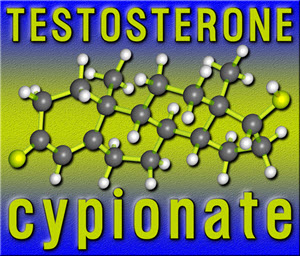Introduction to Norditropin and Growth Hormone Deficiency
Growth hormone deficiency (GHD) is a medical condition characterized by the inadequate secretion of growth hormone from the pituitary gland. This deficiency can lead to a variety of health issues, including stunted growth in children and a range of metabolic disturbances in adults. Norditropin, a recombinant human growth hormone, has been a cornerstone in the management of GHD. Recent studies have begun to explore its broader therapeutic potential, particularly in reducing inflammation, a common comorbidity in GHD patients.
The Link Between Growth Hormone Deficiency and Inflammation
Inflammation is a natural response of the body to injury or infection, but chronic inflammation can lead to numerous health problems, including cardiovascular diseases and metabolic syndromes. In patients with GHD, there is an observed increase in inflammatory markers such as C-reactive protein (CRP) and interleukin-6 (IL-6). This suggests a direct correlation between the lack of growth hormone and heightened inflammatory states.
Norditropin's Mechanism in Reducing Inflammation
Norditropin works by supplementing the body's deficient growth hormone levels, thereby mimicking the natural hormone's effects. The growth hormone is known to influence the immune system and metabolic processes, which can indirectly affect inflammation. Research indicates that by restoring growth hormone levels, Norditropin can help normalize the levels of inflammatory markers, thus potentially reducing the overall inflammatory burden in GHD patients.
Clinical Evidence Supporting Norditropin's Anti-Inflammatory Effects
Several clinical trials have investigated the effects of Norditropin on inflammation in GHD patients. A notable study published in the *Journal of Clinical Endocrinology & Metabolism* demonstrated that after six months of Norditropin therapy, there was a significant reduction in CRP levels among participants. Another study highlighted in *Endocrinology* showed a decrease in IL-6 levels, further supporting the anti-inflammatory potential of Norditropin.
Implications for American Males with Growth Hormone Deficiency
For American males diagnosed with GHD, the implications of Norditropin's anti-inflammatory effects are profound. Not only can it aid in achieving normal growth and development, but it may also play a crucial role in preventing the long-term complications associated with chronic inflammation. This is particularly relevant in a demographic where lifestyle factors such as diet and physical activity can exacerbate inflammatory conditions.
Safety and Administration of Norditropin
Norditropin is administered via subcutaneous injection, typically on a daily basis. While generally well-tolerated, it is essential for patients to be monitored by healthcare professionals to manage potential side effects such as joint pain or fluid retention. Regular monitoring of inflammatory markers can also help in assessing the effectiveness of the therapy in reducing inflammation.
Future Directions and Research
The potential of Norditropin in reducing inflammation opens new avenues for research. Future studies could explore the long-term effects of Norditropin on cardiovascular health and other inflammatory-related diseases in GHD patients. Additionally, research into the optimal dosing and duration of therapy could further enhance its efficacy and safety profile.
Conclusion
Norditropin represents a significant advancement in the management of growth hormone deficiency, with emerging evidence suggesting its role in reducing inflammation. For American males grappling with GHD, this offers hope not only for improved growth and metabolic health but also for a reduced risk of inflammatory-related diseases. As research continues to unfold, Norditropin's place in the therapeutic landscape of GHD continues to strengthen, promising a better quality of life for those affected.
This article underscores the importance of considering the broader impacts of growth hormone therapy and encourages ongoing dialogue between patients and healthcare providers to optimize treatment outcomes.
Contact Us Today For A Free Consultation

- Norditropin's Role in Combatting Metabolic Syndrome: A Comprehensive Review [Last Updated On: February 18th, 2025] [Originally Added On: February 18th, 2025]
- Norditropin: Enhancing Growth and Health in American Males with GHD [Last Updated On: February 21st, 2025] [Originally Added On: February 21st, 2025]
- Unveiling the Potential of Norditropin in Treating Growth Hormone Deficiency in Prader-Willi Syndrome [Last Updated On: March 5th, 2025] [Originally Added On: March 5th, 2025]
- Unveiling the Impact of Norditropin on Lipid Profiles in Men with Growth Hormone Deficiency [Last Updated On: March 15th, 2025] [Originally Added On: March 15th, 2025]
- Exploring the Efficacy of Norditropin in Treating Growth Hormone Deficiency Amid Gastrointestinal Challenges [Last Updated On: March 16th, 2025] [Originally Added On: March 16th, 2025]
- Norditropin's Impact on Eye Health in Growth Hormone Deficient American Males [Last Updated On: March 16th, 2025] [Originally Added On: March 16th, 2025]
- Unraveling the Impact of Norditropin on Thyroid Function in American Males with Growth Hormone Deficiency [Last Updated On: March 16th, 2025] [Originally Added On: March 16th, 2025]
- Exploring the Safety and Efficacy of Norditropin for Growth Hormone Replacement in Aging American Males [Last Updated On: March 16th, 2025] [Originally Added On: March 16th, 2025]
- Exploring the Impact of Norditropin on Urinary System Health in American Males with Growth Hormone Deficiency [Last Updated On: March 16th, 2025] [Originally Added On: March 16th, 2025]
- Norditropin Enhances Insulin Sensitivity in American Males with Growth Hormone Deficiency [Last Updated On: March 16th, 2025] [Originally Added On: March 16th, 2025]
- Norditropin Enhances Immune Function in Growth Hormone Deficient American Males [Last Updated On: March 17th, 2025] [Originally Added On: March 17th, 2025]
- Norditropin's Long-Term Safety for American Males with Growth Hormone Deficiency [Last Updated On: March 18th, 2025] [Originally Added On: March 18th, 2025]
- Norditropin Enhances Sleep Quality in American Males with Growth Hormone Deficiency [Last Updated On: March 19th, 2025] [Originally Added On: March 19th, 2025]
- Norditropin's Impact on Fertility in American Males with Growth Hormone Deficiency [Last Updated On: March 19th, 2025] [Originally Added On: March 19th, 2025]
- Norditropin: Enhancing Exercise Capacity in American Males with Growth Hormone Deficiency [Last Updated On: March 19th, 2025] [Originally Added On: March 19th, 2025]
- Norditropin: Enhancing Life for Male Cancer Survivors with Growth Hormone Deficiency [Last Updated On: March 21st, 2025] [Originally Added On: March 21st, 2025]
- Norditropin Therapy Enhances Skin Health in American Males with GHD [Last Updated On: March 21st, 2025] [Originally Added On: March 21st, 2025]
- Norditropin Enhances Wound Healing in American Males with Growth Hormone Deficiency [Last Updated On: March 21st, 2025] [Originally Added On: March 21st, 2025]
- Norditropin: Enhancing Cognitive Function in Adults with Growth Hormone Deficiency [Last Updated On: March 21st, 2025] [Originally Added On: March 21st, 2025]
- Norditropin Enhances Vision in American Males with Growth Hormone Deficiency [Last Updated On: March 22nd, 2025] [Originally Added On: March 22nd, 2025]
- Norditropin in Combination Therapies for GHD in American Males: Efficacy and Benefits [Last Updated On: March 22nd, 2025] [Originally Added On: March 22nd, 2025]
- Norditropin: Alleviating Fatigue in American Males with Growth Hormone Deficiency [Last Updated On: March 22nd, 2025] [Originally Added On: March 22nd, 2025]
- Norditropin: Enhancing Mood and Quality of Life in Men with Growth Hormone Deficiency [Last Updated On: March 22nd, 2025] [Originally Added On: March 22nd, 2025]
- Norditropin's Role in Managing Pain for American Males with Growth Hormone Deficiency [Last Updated On: March 22nd, 2025] [Originally Added On: March 22nd, 2025]
- Norditropin: Enhancing Life for American Males with GHD and Autoimmune Disorders [Last Updated On: March 22nd, 2025] [Originally Added On: March 22nd, 2025]
- Norditropin's Impact on Hair Growth in American Men with GHD: Efficacy and Benefits [Last Updated On: March 23rd, 2025] [Originally Added On: March 23rd, 2025]
- Norditropin Therapy: Effects on Adrenal Function in American Men with GHD [Last Updated On: March 23rd, 2025] [Originally Added On: March 23rd, 2025]
- Norditropin's Potential in Reducing Migraines for American Males with Growth Hormone Deficiency [Last Updated On: March 23rd, 2025] [Originally Added On: March 23rd, 2025]
- Norditropin's Impact on Appetite and Weight in American Men with Growth Hormone Deficiency [Last Updated On: March 23rd, 2025] [Originally Added On: March 23rd, 2025]
- Norditropin: Reducing Anxiety in American Males with Growth Hormone Deficiency [Last Updated On: March 24th, 2025] [Originally Added On: March 24th, 2025]
- Norditropin's Impact on Cardiovascular Health in American Men with Growth Hormone Deficiency [Last Updated On: March 24th, 2025] [Originally Added On: March 24th, 2025]
- Norditropin's Potential to Reduce Ear Infections in American Males with GHD [Last Updated On: March 24th, 2025] [Originally Added On: March 24th, 2025]
- Norditropin Enhances Balance and Coordination in American Men with Growth Hormone Deficiency [Last Updated On: March 24th, 2025] [Originally Added On: March 24th, 2025]
- Norditropin Reduces Allergic Reactions in American Males with Growth Hormone Deficiency [Last Updated On: March 25th, 2025] [Originally Added On: March 25th, 2025]
- Norditropin Therapy's Impact on Dental Health in American Males with GHD [Last Updated On: March 25th, 2025] [Originally Added On: March 25th, 2025]
- Norditropin Enhances Skin Elasticity in American Men with Growth Hormone Deficiency [Last Updated On: March 25th, 2025] [Originally Added On: March 25th, 2025]
- Norditropin Therapy Enhances Digestive Health in American Men with GHD [Last Updated On: March 25th, 2025] [Originally Added On: March 25th, 2025]
- Norditropin's Impact on Hearing in American Men with Growth Hormone Deficiency [Last Updated On: March 25th, 2025] [Originally Added On: March 25th, 2025]
- Norditropin Therapy's Impact on Kidney Function in American Men with GHD [Last Updated On: March 25th, 2025] [Originally Added On: March 25th, 2025]
- Norditropin's Potential Antidepressant Effects in American Men with Growth Hormone Deficiency [Last Updated On: March 25th, 2025] [Originally Added On: March 25th, 2025]
- Norditropin: Enhancing Liver Function in American Males with Growth Hormone Deficiency [Last Updated On: March 26th, 2025] [Originally Added On: March 26th, 2025]
- Norditropin Enhances Memory in American Males with Growth Hormone Deficiency [Last Updated On: March 26th, 2025] [Originally Added On: March 26th, 2025]
- Norditropin's Impact on Thyroid Function in American Men with GHD [Last Updated On: March 26th, 2025] [Originally Added On: March 26th, 2025]
- Norditropin Enhances Eye Health in American Males with Growth Hormone Deficiency [Last Updated On: March 26th, 2025] [Originally Added On: March 26th, 2025]
- Norditropin Therapy Enhances Muscle Health in American Males with GHD [Last Updated On: March 26th, 2025] [Originally Added On: March 26th, 2025]
- Norditropin Enhances Respiratory Function in American Males with Growth Hormone Deficiency [Last Updated On: March 26th, 2025] [Originally Added On: March 26th, 2025]
- Norditropin's Impact on Joint Health in American Males with Growth Hormone Deficiency [Last Updated On: March 26th, 2025] [Originally Added On: March 26th, 2025]
- Norditropin Reduces Osteoporosis Risk in American Males with Growth Hormone Deficiency [Last Updated On: March 26th, 2025] [Originally Added On: March 26th, 2025]
- Norditropin Enhances Throat Health in American Males with Growth Hormone Deficiency [Last Updated On: March 27th, 2025] [Originally Added On: March 27th, 2025]
- Norditropin: Enhancing Life Quality in American Males with GHD and Neurological Disorders [Last Updated On: March 27th, 2025] [Originally Added On: March 27th, 2025]
- Norditropin Therapy Enhances Hair Quality in American Men with Growth Hormone Deficiency [Last Updated On: March 27th, 2025] [Originally Added On: March 27th, 2025]
- Norditropin Therapy Enhances Sexual Health in American Men with Growth Hormone Deficiency [Last Updated On: March 27th, 2025] [Originally Added On: March 27th, 2025]
- Norditropin Enhances Nail Health in American Men with Growth Hormone Deficiency [Last Updated On: March 27th, 2025] [Originally Added On: March 27th, 2025]
- Norditropin: Treating Growth Hormone Deficiency in Gastrointestinal Disorder Patients [Last Updated On: March 28th, 2025] [Originally Added On: March 28th, 2025]
- Norditropin Enhances Lung Function in American Men with Growth Hormone Deficiency [Last Updated On: March 28th, 2025] [Originally Added On: March 28th, 2025]
- Norditropin's Impact on Heart Health in American Men with Growth Hormone Deficiency [Last Updated On: March 29th, 2025] [Originally Added On: March 29th, 2025]
- Norditropin's Impact on Nasal Health in American Men with Growth Hormone Deficiency [Last Updated On: March 30th, 2025] [Originally Added On: March 30th, 2025]
- Norditropin's Potential in Reducing Sinus Issues in American Males with GHD [Last Updated On: March 30th, 2025] [Originally Added On: March 30th, 2025]
- Norditropin: Enhancing Growth and Respiratory Health in American Males with GHD [Last Updated On: March 31st, 2025] [Originally Added On: March 31st, 2025]
- Norditropin Therapy Enhances Vascular Health in American Males with Growth Hormone Deficiency [Last Updated On: April 2nd, 2025] [Originally Added On: April 2nd, 2025]
- Norditropin's Dual Benefits: Enhancing GHD and Anemia Treatment in American Males [Last Updated On: April 2nd, 2025] [Originally Added On: April 2nd, 2025]
- Norditropin's Impact on Lymphatic Health in American Males with GHD [Last Updated On: April 3rd, 2025] [Originally Added On: April 3rd, 2025]
- Norditropin Enhances Blood Health in American Men with Growth Hormone Deficiency [Last Updated On: April 5th, 2025] [Originally Added On: April 5th, 2025]
- Norditropin Therapy Enhances Immune Health in American Males with GHD [Last Updated On: April 6th, 2025] [Originally Added On: April 6th, 2025]
- Norditropin's Role in Managing Growth Hormone Deficiency with Allergic Disorders [Last Updated On: April 6th, 2025] [Originally Added On: April 6th, 2025]
- Norditropin's Potential in Managing Autoimmune Symptoms in GHD American Men [Last Updated On: April 8th, 2025] [Originally Added On: April 8th, 2025]
- Norditropin: Enhancing Life Quality in Men with Growth Hormone Deficiency [Last Updated On: April 9th, 2025] [Originally Added On: April 9th, 2025]
- Norditropin Enhances Neurological Health in Growth Hormone Deficient American Males [Last Updated On: April 9th, 2025] [Originally Added On: April 9th, 2025]
- Norditropin Therapy Enhances Urinary Health in American Males with GHD [Last Updated On: April 10th, 2025] [Originally Added On: April 10th, 2025]
- Norditropin Enhances Digestive Health in American Males with Growth Hormone Deficiency [Last Updated On: April 10th, 2025] [Originally Added On: April 10th, 2025]
- Norditropin Therapy Enhances Musculoskeletal Health in American Males with GHD [Last Updated On: April 10th, 2025] [Originally Added On: April 10th, 2025]
- Norditropin's Potential in Enhancing Skin Health for American Males with GHD [Last Updated On: April 10th, 2025] [Originally Added On: April 10th, 2025]
- Norditropin Therapy: Impacts on Reproductive Health in American Men with GHD [Last Updated On: April 11th, 2025] [Originally Added On: April 11th, 2025]
- Norditropin: Enhancing GHD Treatment in American Males with Skin Disorders [Last Updated On: April 11th, 2025] [Originally Added On: April 11th, 2025]
- Norditropin's Potential in Enhancing Gastrointestinal Health for Males with GHD [Last Updated On: April 11th, 2025] [Originally Added On: April 11th, 2025]
- Norditropin's Potential to Reduce Hearing Loss in American Males with GHD [Last Updated On: April 15th, 2025] [Originally Added On: April 15th, 2025]
- Norditropin: Treating Growth Hormone Deficiency in Patients with Respiratory Disorders [Last Updated On: April 16th, 2025] [Originally Added On: April 16th, 2025]
- Norditropin Therapy Enhances Eye Health in American Males with Growth Hormone Deficiency [Last Updated On: April 16th, 2025] [Originally Added On: April 16th, 2025]
- Norditropin Therapy Enhances Throat Health in American Males with Growth Hormone Deficiency [Last Updated On: April 17th, 2025] [Originally Added On: April 17th, 2025]
- Norditropin's Potential in Reducing Sinus Issues for American Men with GHD [Last Updated On: April 17th, 2025] [Originally Added On: April 17th, 2025]
Word Count: 571



















